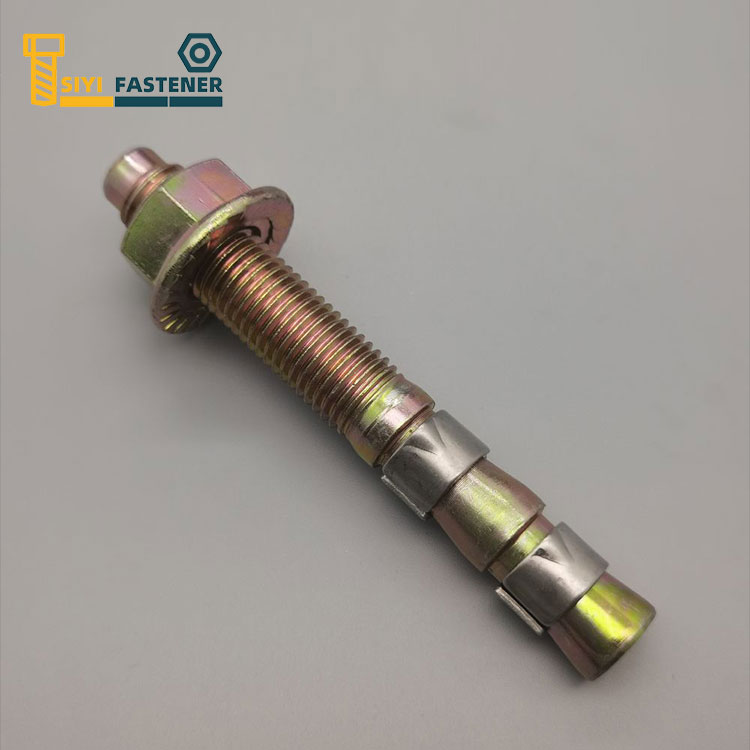Why Are Wedge Anchors the Go-To Choice for Heavy-Duty Fastening?
2024-12-11
When it comes to securing heavy objects to concrete or masonry surfaces, wedge anchors are often the first choice for contractors and DIY enthusiasts alike. These robust fasteners are known for their reliability and strength, making them indispensable in construction and industrial applications. But what makes wedge anchors so effective, and why are they the preferred option for heavy-duty fastening?
1. What Are Wedge Anchors?
Wedge anchors are mechanical fasteners used to attach objects or structures to solid concrete surfaces. They consist of a threaded stud, a nut, and a washer, with a wedge mechanism at the end that locks the anchor firmly in place when tightened.
2. How Do Wedge Anchors Work?
When a wedge anchor is inserted into a pre-drilled hole and the nut is tightened, the wedge at the bottom of the anchor expands. This expansion creates a tight grip against the walls of the concrete hole, providing exceptional holding power and preventing the anchor from pulling out.
3. Where Are Wedge Anchors Used?
Wedge anchors are commonly used in applications requiring high load capacity and durability:
- Construction: To secure structural elements like beams and columns.
- Industrial setups: For mounting heavy machinery and equipment.
- Home projects: To install railings, shelves, or storage systems.
- Seismic zones: For anchoring systems that must withstand vibrations and shocks.
4. What Makes Them Different from Other Anchors?
Unlike adhesive or plastic anchors, wedge anchors rely on mechanical expansion to achieve their grip. This makes them ideal for environments where extreme weight or vibration is a factor, as they maintain their hold even under stress.
5. What Are the Key Benefits of Wedge Anchors?
- High strength: Their design provides superior load-bearing capacity.
- Durability: Made from corrosion-resistant materials like stainless steel, they perform well in harsh conditions.
- Ease of installation: They require only a drilled hole and standard tightening tools.
- Versatility: Available in various sizes and materials to suit different needs.
6. Are They Suitable for All Surfaces?
Wedge anchors are specifically designed for solid concrete and dense masonry materials. They are not recommended for soft or hollow surfaces like drywall or lightweight concrete, where alternative anchors would be more effective.
7. How to Choose the Right Wedge Anchor?
Selecting the appropriate wedge anchor involves considering factors such as:
- Load requirements: Ensure the anchor can handle the intended weight.
- Environmental conditions: Use corrosion-resistant materials in wet or outdoor settings.
- Hole depth and diameter: Match the anchor size to the drilled hole for a secure fit.
8. Can Wedge Anchors Be Removed?
While wedge anchors are designed for permanent installations, they can be removed if necessary. However, the process often leaves the concrete hole slightly damaged, requiring repair or an alternative anchor for reuse.
9. What Innovations Are Shaping the Future of Wedge Anchors?
Recent advancements have improved wedge anchors with features like enhanced corrosion resistance, higher load capacities, and easier installation methods. These innovations ensure that wedge anchors remain a top choice in evolving construction and industrial applications.
Wedge anchors stand out for their unparalleled strength and reliability, making them a cornerstone of secure and stable fastening in various projects. Whether you're tackling a major construction job or a simple home improvement task, wedge anchors deliver the durability and performance you need.



